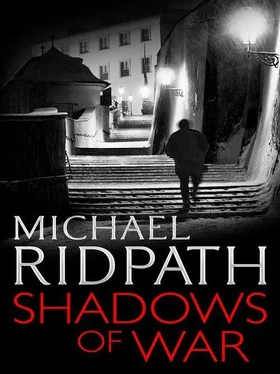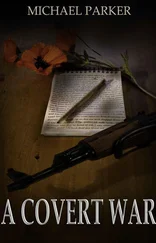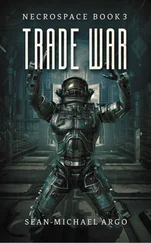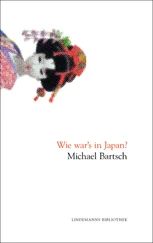‘I suppose that’s true,’ said Conrad. ‘Although it didn’t go very well.’
Oakford poured his daughter a glass of sherry.
‘Cheers!’ said Millie, raising her glass to her brother. ‘Anything to do with Theo?’
Conrad glanced at his father, who looked sheepish. He must have told his daughter more than he was letting on. Theo had made quite an impression on Millie when he had met her in Berlin the year before; Theo tended to make an impression on women when he met them.
‘Theo is in the enemy’s secret service, Millie,’ Conrad said.
‘You’re not answering the question, are you, Conrad?’
‘No, I’m not,’ said Conrad with a grin.
They went in to dinner, the three of them. Tomato soup and pheasant from Chilton Coombe. They talked about the evacuees, and about Conrad’s mother and how the village was dealing with a German woman in its midst, which was very well — with the exception of the old bat who ran the village shop, who was causing trouble.
‘How’s Anneliese?’ Millie asked. ‘How do people treat her in London?’
‘Some people think she’s a spy because she’s German,’ said Conrad. ‘Some people think she’s a profiteer because she’s Jewish. But she says it’s miles better than Berlin. Her family seem pleased to be here, although they are all crammed into one room in Hampstead.’
‘Can’t you help, her, Conrad?’
‘Anneliese is very proud,’ Conrad said. ‘And stubborn.’
‘Like your mother,’ said Lord Oakford.
‘What’s wrong, Conrad?’ Millie asked.
Conrad hesitated. Typical of Millie to notice there was something wrong, and then to come right out and ask about it. Conrad knew his family liked Anneliese, much more than they had liked his former wife Veronica. With Millie there, he abandoned his earlier reticence.
‘I don’t know, exactly,’ he said. ‘She says she doesn’t want to see me anymore. No matter how hard I try to help her, she seems to push me away. I don’t know whether it’s got something to do with what she suffered in the concentration camp, or coming to England, or worrying about her parents. I don’t know what it is.’
‘But that doesn’t make any sense!’ Millie said.
‘Sometimes these things don’t,’ said Oakford gravely. ‘The mind can work in strange ways after the kind of thing she suffered. I know.’
Conrad and Millie fell silent. Lord Oakford had come out of the Great War a severely damaged man. His life had changed the day at Passchendaele when he had taken and held a German machine-gun position, won his Victoria Cross, lost his arm, and lost his will to fight. Since then, he had done everything he could to stop war. But also since then he had suffered from occasional bouts of black, angry misery. These Conrad and Millie had grown up with. They had come to learn what triggered these moods, but still they didn’t really understand them.
‘What should I do, Father? About Anneliese?’
It was a long time since Conrad had asked his father’s advice on anything. But he had a feeling that Lord Oakford might know the answer.
‘Do you love her?’
‘Yes,’ said Conrad. ‘In fact I asked her to marry me. She turned me down.’
Oakford sipped his water. ‘Give her space to sort herself out, Conrad. When she wants you, she’ll find you. Just make sure you are available.’
Conrad exchanged glances with Millie. That sounded like good advice, although he wasn’t sure he could just let Anneliese go. Once she went to New York he might never see her again and he wasn’t sure he could bear that. But what choice did he have?
They ate in silence for a moment or two.
‘Conrad?’ Oakford said.
‘Yes?’
‘I know I’ve asked you before now, but I could use your help.’
‘With what, Father?’ But Conrad knew. He could see Millie tense up. She was right to do so. There was trouble brewing.
‘Can you have a word with Theo for me? About peace.’
‘You’ve asked me before. The answer is still no.’
Lord Oakford had asked Conrad to meet Theo in Switzerland the previous spring, before the outbreak of war. Conrad had refused: he was suspicious of his father’s desire for peace at any cost, and was concerned that his meddling would just undermine the British government’s attempt finally to stand up to Hitler. It was true that in the end he, Conrad, had travelled to Holland to talk to Schämmel about peace, but that was at the British government’s behest, not his father’s. And that little jaunt hadn’t turned out very well.
‘We need to stop this war before it really gets going,’ Lord Oakford said.
‘We need to stop Hitler, you mean.’
‘They’ve all got plans, you know. Churchill wants to invade Norway. The French want to invade Russia. Hitler wants to invade Holland and Belgium. It’s only a matter of time before the Luftwaffe comes and starts dropping bombs on London. We’ve got to stop them, Conrad, all of them. And with your links with the Wehrmacht, you can help us.’
‘Father, we’re fighting a war,’ Conrad said. ‘And it’s a just war. It’s not like the first war where your country fought Mother’s country. This is a war between good and evil. Hitler is evil, Father. If he wins, Europe will fall into darkness. He has to lose. We have to beat him.’
‘But we have no plans to beat him, do we?’ said Oakford. ‘Our plan is to sit in France and wait for him to attack us. And when he does it will be like the western front all over again. Except this time there will be tens of thousands of air-raid casualties among civilians in Britain.’
‘He won’t go away until we beat him,’ Conrad said.
‘Damn it, Conrad!’ Oakford hit his palm on the table. ‘It takes two to fight a war. We can end this if we want to.’
‘Stop it, both of you!’ said Millie.
Both men looked at her.
‘Stop it! Father, you know what Conrad’s views are. And, Conrad, you know how much Father believes in peace. Neither of you is going to change the other’s point of view. But Conrad’s going off to fight. And Father is right, a bomb might land on this house, or on the House of Lords. Maybe the Germans will invade Somerset. Maybe we won’t see each other again. I couldn’t bear it if the last time we ever saw each other ended in a fight. So please do shut up.’
Lord Oakford glared at his impertinent daughter. ‘Millie!’
The colour in Millie’s cheeks rose, but she held his gaze.
‘I’ll shut up,’ said Conrad. ‘Millie’s right.’
Oakford turned to his pheasant, stabbing it with his fork. ‘I wish you would see sense, Conrad,’ he muttered.
Conrad let his father have the last word. But, as far as he was concerned, he had seen sense. That was the whole point.
Kensington, London, 11 November
Millie and her father walked briskly along Kensington High Street towards the park. Lord Oakford was in good spirits, which pleasantly surprised Millie. An argument with his son about war and peace was just the kind of thing that could set Lord Oakford off on a week-long bad mood. Added to which, it was Armistice Day, which Millie had feared would only add salt to the wound. No one had mentioned the date yet that morning, although the newspapers had been full of the plan to move the two-minutes’ silence to the following day, Sunday, in order not to interrupt war production.
She was glad she had put her foot down at dinner. Although the evening had become uncomfortable, it could have been a lot worse. She hadn’t realized until she had said it how aware she had been that this might be their last time together: that something might happen to one or other of them. And she didn’t just mean Conrad. It was only then that it had truly sunk in that what she was about to do had its own danger, that she might be the one not to come back. For a moment she could feel the fear enveloping her, but she beat it back. Millie de Lancey was a brave woman, at least as brave as her elder brother.
Читать дальше












